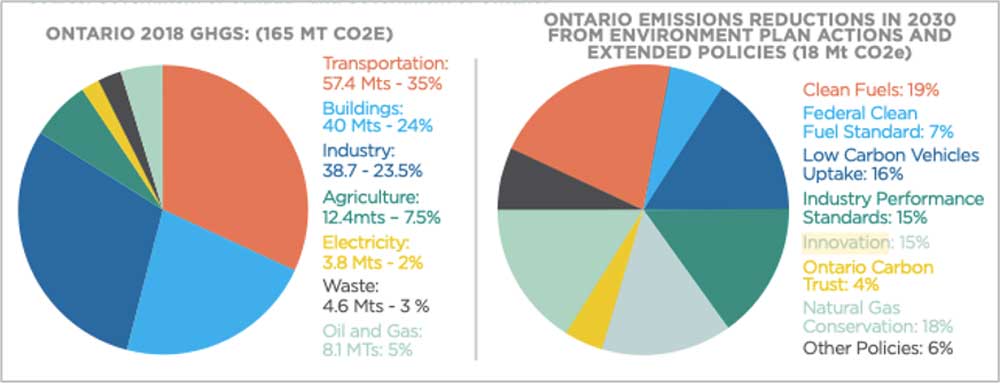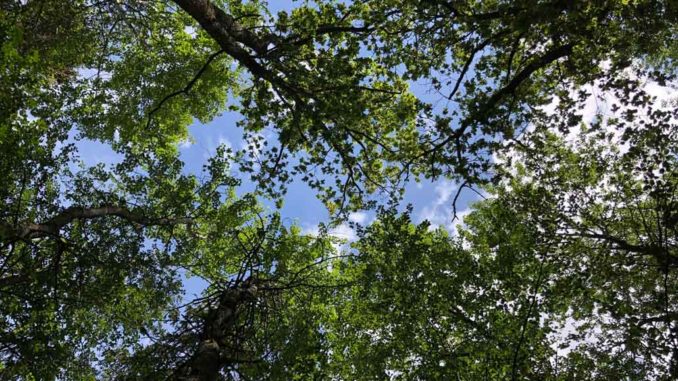Happy New Year, Leaside! What do you think 2021 will have in store for us? At minimum, the health of our environment should be front and centre with two significant changes taking place last month that will have a significant impact on how we live, and for some, how we will earn a living. The first change occurred on Dec 8th with controversial Bill 229, which makes changes to the Local Planning Appeal Tribunal’s (LPAT’s) jurisdiction in the areas of municipal levies, issuance of permits and land use planning. The bill also includes Schedule 6, which affects the role of Ontario’s 36 conservation authorities. The second change occurred on Dec 11th with the announcement of our federal government’s “strengthened” climate plan to create jobs and support people, communities and the planet. Change represents opportunity. Since nothing will change if nothing changes, I am open to these changes and will work to develop the opportunities that will emerge as a result.
Flat or rising GHG emissions in the future?
Back in May 2019, I wrote, “I should be supporting green businesses over traditional ones wherever possible.” At the time I called for “green-preneurs” to take the stage with new “clean-tech” initiatives while encouraging Leaside to make the effort to become one of Canada’s greenest neighbourhoods. Evidence shows green neighbourhoods are economically successful and provide a healthier environment where families can flourish. Today, I feel the urgency to do this has become a necessity because governments are gearing up to “build back better” and “smarter” post-pandemic, investing in infrastructure, technologies and the ensuing data required to run our cities more efficiently. Why urgent?
Leaside Life reader Michael Brophy recently alerted me to a report by Environmental Defence that brought the situation in Ontario to the forefront. Bottom line is that Ontario’s progress on climate change is showing “a worrying increase in greenhouse gas emissions (GHGs).” (Refer to graphic above).
Ontario greenhouse gas emissions, 2018 and planned reductions by 2030

I think there are three categories in the 2030 emission reduction projection where our individual choices can make a difference since regulations will ensure the other GHG emission reduction categories have a good chance at realizing their potential. The first category is the shift to low carbon vehicles. Second, we must remain vigilant in our effort to conserve natural gas. The third category is innovation – one I am excited to see, but do question the reliability and validity of the forecasted contribution. Could be more, could be less.
Change is inevitable, growth is optional
The innovation category is a reference to new technological advancements designed to reduce GHG emissions. Technology has a role to play in making the earth a more sustainable place for future generations to thrive. Today, being green is no longer an economic hardship; it is a catalyst for innovation, new market opportunity, and wealth creation. ‘Smart’ cities of the future will comprise ‘smart neighbourhoods.’ A smart neighbourhood is forward-thinking and being developed (or redeveloped) to support the future of urban livability, mobility, and connectivity.
Leaside has a history of supporting ‘green’ firms, and many of them depend on that support to survive. These firms need to attract investment and ‘regular’ paying customers if their work is going to make a meaningful contribution towards protecting our environment. Also, with governments planning to spend their way to recovery, strategic investments that “help both the economy and the climate could be a game-changer and allow Ontario to capture a share of the jobs related to green building, electric vehicle manufacturing, clean fuels, renewable energy manufacturing and production, and other clean technologies.” With almost no effort, I’m pretty sure 2021 will be better than 2020 for most of us. Just how much better will depend on the types of actions we choose to take. I believe Leaside would benefit from being a greener and smarter neighbourhood.
How do you think Bill 229 will affect conservation efforts in Leaside? What programs to address climate change would be a good fit for Leaside? Would Leaside benefit from becoming a smart neighbourhood?



